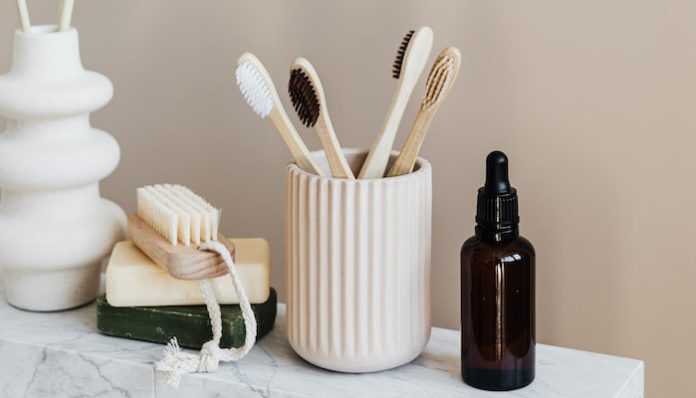
When was the last time that you replaced your toothbrush, makeup brushes, or dish sponge? There are many more household items that we use on a daily basis that we may not be cleaning or changing out as often as we should. Not to gross you out, but these items can harbor plaque, bacteria and fungus if they are not cleaned and replaced regularly. If you’re struggling to remember the last time you replaced these items, here’s a hint: You should probably throw them out like, now.
1. Makeup Brushes
Your makeup brushes are a hot spot for dirt, oil and germs, which can contribute to skin irritation and breakouts. Dermatologists recommend you clean your makeup brushes every 7 to 10 days, especially the ones you use most often such as foundation and concealer brushes.
Unfortunately, the truth is that your makeup brushes will not last forever. Consequently, you should replace them every three to six months, depending on how often you use them and the condition they are in.
2. Dish Sponges
Your dish sponge may actually be dirtier than your toilet seat. Because most dish sponges don’t dry out between uses, the moisture encourages the production of harmful bacteria, and soap and water just won’t do the job.
According to the CDC, you should change out your sponge every two weeks. Some experts even recommend changing it out once a week. If you want to prolong its life, the USDA recommends popping it in the microwave for one minute every few days to zap the harmful bugs.
3. Toothbrushes
Our mouths harbor millions of germs. In removing bacteria and plaque from our teeth, toothbrushes become contaminated with bacteria, plaque and food particles over time. Rinsing your toothbrush thoroughly with tap water after each use is a common recommendation.
While there is little data around toothbrush sanitization, one study suggests soaking your toothbrush in 3 percent hydrogen peroxide or Listerine mouthwash greatly reduces bacterial presence.
The American Dental Association (ADA) recommends you replace your toothbrush every three to four months and even sooner if the bristles are starting to fray.
4. Towels
Towels retain moisture, which provides a happy home for dangerous bacteria and microfungi. You should wash your bath towels every three to four days, or even more often depending on your usage.
Towels don’t last forever, and you should replace them if they start to retain a musty smell or they are tattered and worn out. It is recommended that you replace your towels once they start to lose their absorbency, which is roughly every two years. Instead of tossing them, wash them and donate them to a local animal shelter for the puppies and kittens to use.
5. Shower Pouf/Loofah
Your shower pouf or loofah is one of those things hanging out pretty often in an environment filled with moisture, also making it a bacteria-breeding hotspot. What’s more, dead skin easily gets caught in the netting of loofahs. You should rinse your pouf or loofah in hot water on a daily basis and hang it out to dry in a well-ventilated area. For weekly maintenance, submerge your loofah in a solution of warm water and hydrogen peroxide for ten minutes.
Dermatologists recommend replacing your plastic loofah or pouf every three to four weeks. With a natural loofah, you can probably get up to two months’ use out of it. However, if you spot mold growing on your loofah or if it starts to retain a strange smell, DO NOT wait. Throw it out right away and get a new one!
It can be hard to let go of your favorite loofah or that amazing blending brush, or that sentimental dinosaur towel you’ve been using since you were nine years old. But unfortunately, not everything lasts forever. Changing these items out regularly is super important for your overall health and wellbeing.
Featured image via Pexels


















